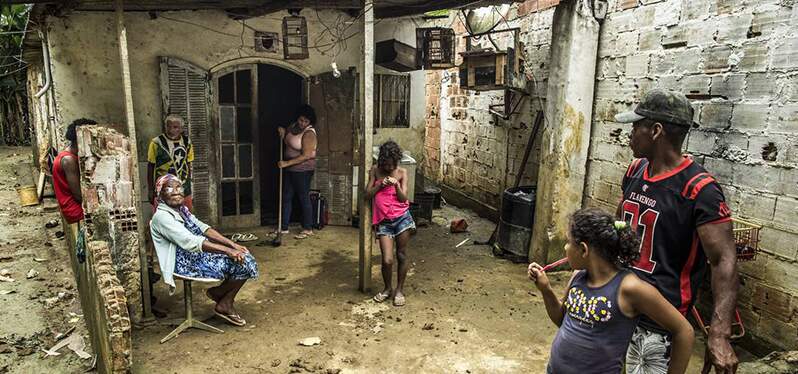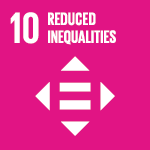Posted in: 02/20/2023
On the World Day of Social Justice , February 20, the United Nations (UN) seeks to reinforce the fight against inequalities and the promotion of the population’s rights.
Among the main factors of social inequality are poor income distribution , poor access to education and lack of guaranteed basic services, which are aggravated by racial, gender and religious issues.
In the country, 29.4% of the population lives below the poverty line and, of this total, 37.7% are self-declared black and brown people, according to data from the Institute of Geography and Statistics (IBGE). In order to combat this inequality worldwide, the UN pointed out in 2022 that access to formal work is the way to reduce poverty and inequality .
The poorest populations, also impacted by the pandemic, take up informal work due to lack of income and access to opportunities. But this type of work, although it is an alternative to poverty, generates professional insecurity , since there are no protections or benefits to ensure their income.

In Brazil, the North and Northeast regions are the ones that suffer the most from informality and professional insecurity , according to research by FGV Ibre. Furthermore, they are the most sensitive to hunger and poverty .
During his participation in the 27th Conference of the Parties on Climate Change (COP27) , President Luiz Inácio Lula da Silva declared the importance of access to work to fight deforestation and global warming , which are inseparable in the fight against hunger and poverty. And with the restoration of forests and appreciation of local biodiversity, it would be possible to generate more jobs and income for the population.
Ana Toni, executive director of the Instituto Clima e Sociedade (iCS) , points to this relationship between global warming and social inequality , in which the most vulnerable population is the most impacted by climate change, whether with floods, landslides, high prices and scarcity of products and even in family farming.
The reparation system has the power to collaborate to reduce inequalities and promote rights for the entire population. An example of this is the Quota Law , which allows access to quality higher education, as a way of repairing and minimizing inequality, providing an economic balance . Between 2013 and 2019, there was a 205% increase in the number of black, brown, indigenous and low-income students in Brazilian universities .

Like the Quota Law, affirmative actions have the role of repairing social inequalities, either through scholarships, financial aid and laws for the inclusion of minorities.
The participation of minority groups in different spaces, such as companies and universities, is essential for debating ideas and actions to achieve social justice and diversity. And, in addition to participating in companies, corporations have the role of acting with social responsibility in the territories and local communities in which they operate, contributing to social development.
Understanding the processes necessary to achieve social justice, Synergia adhered to the UN Global Compact and joined the Ambition Program for the Sustainable Development Goals (SDGs) of the UN 2030 Agenda , which aims to promote social justice and reduce of inequalities.
Among the commitments made based on the SDGs are:
In addition, Synergia included in its action plan the SDGs related to the Eradication of Poverty (SDG 1), Quality Education (SDG 4), Decent Work and Economic Growth (SDG 8); Reducing inequality (SDG 10) and Peace, justice and effective institutions (SDG 16).

Sign up and receive our news.